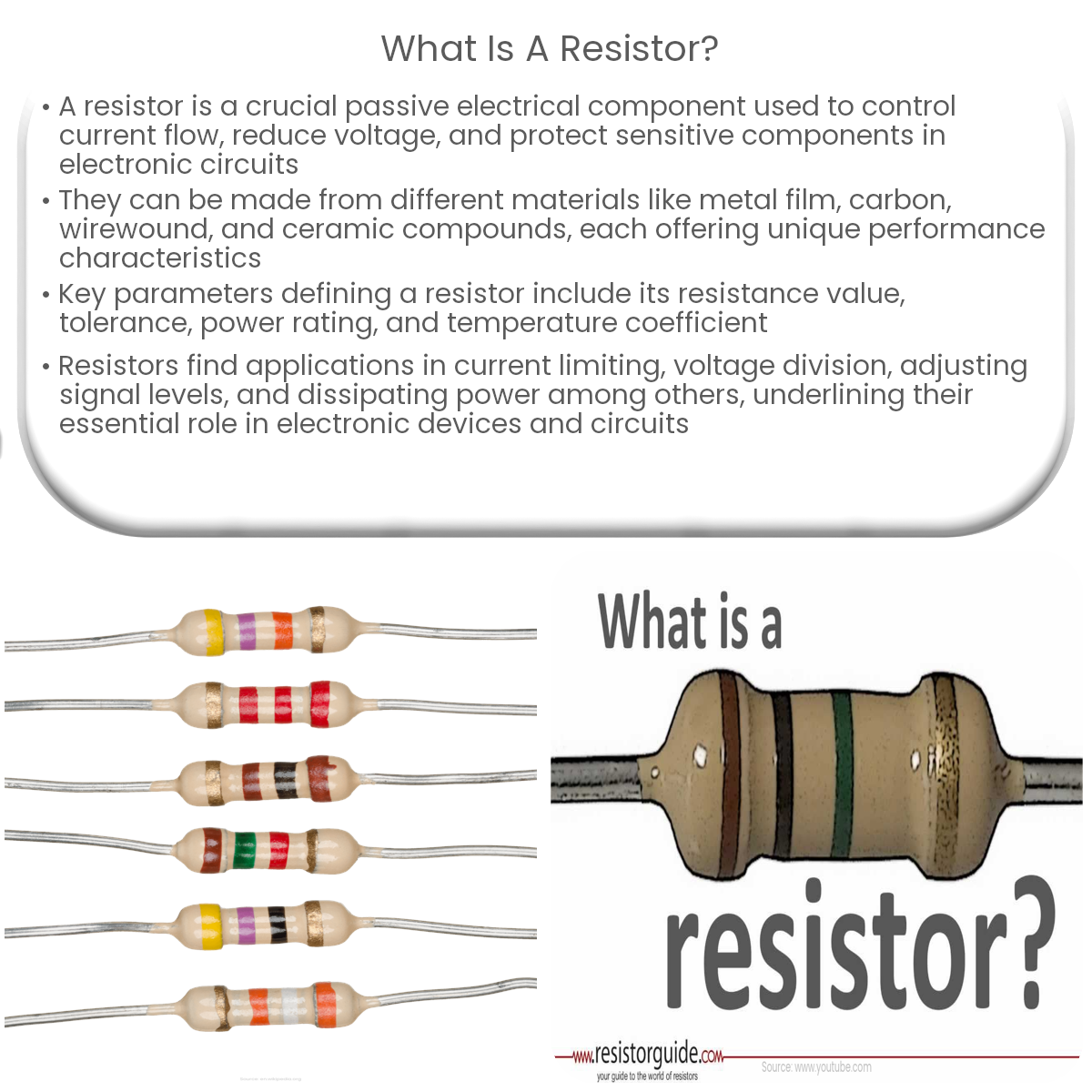A resistor is a passive electrical component that creates specified resistance in a circuit, controlling current flow, reducing voltage, and protecting components.
What is a Resistor?
A resistor is a passive electrical component designed to create a specified amount of resistance in an electrical circuit. Resistors are used to control the flow of electric current, reduce voltage, dissipate power, and protect sensitive components. They play a crucial role in the design and operation of electronic devices and circuits.
Resistor Construction
Resistors can be made from various materials, including metal film, carbon, wirewound, and ceramic compounds. The material and construction determine the resistor’s performance characteristics, such as tolerance, power rating, and temperature coefficient. Common resistor types include:
- Carbon Composition: These resistors consist of a mixture of carbon and an insulating binder. They have a relatively low cost and are suitable for general-purpose applications.
- Metal Film: Metal film resistors have a thin metal film deposited on an insulating substrate. They offer better accuracy, stability, and lower noise than carbon composition resistors.
- Wirewound: Wirewound resistors are made by winding a metal wire, usually nichrome, around an insulating core. They can handle high power and are used in applications where precision and stability are essential.
- Thick and Thin Film: These resistors are made by depositing a resistive film on a ceramic substrate, either by screen printing (thick film) or vapor deposition (thin film). They offer high precision and stability.
Resistor Parameters
Resistors are specified by their resistance value, measured in ohms (Ω), as well as additional parameters that describe their performance, such as:
- Tolerance: The tolerance of a resistor indicates the maximum deviation of its resistance value from the specified nominal value, expressed as a percentage.
- Power Rating: The power rating indicates the maximum power a resistor can safely dissipate without damage or excessive temperature rise. It is typically measured in watts (W).
- Temperature Coefficient: The temperature coefficient describes how the resistance value changes with temperature, usually expressed in parts per million per degree Celsius (ppm/°C).
Resistor Applications
Resistors are used in a wide range of electronic applications, including:
- Current limiting and voltage division in circuits
- Adjusting signal levels
- Terminating transmission lines
- Providing timing elements in oscillators and filters
- Dissipating power as heat in voltage regulators and power supplies
Conclusion
Resistors are essential components in electrical and electronic circuits, controlling current flow, reducing voltage, and protecting sensitive components. They are available in various materials and constructions, each with specific performance characteristics. Understanding resistor types and their applications is crucial for anyone working with electronic circuits and devices.


